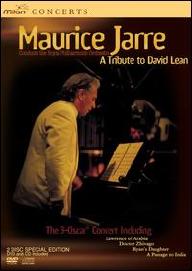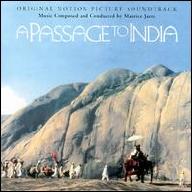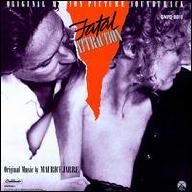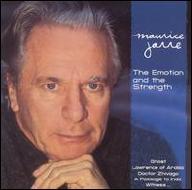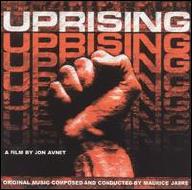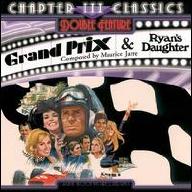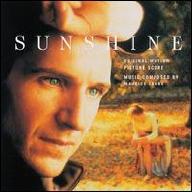Born Maurice-Alexis Jarre in 1924 in Lyon, France, Jarre was enrolled as an engineering student at the Sorbonne when he broke with expectations and instead entered the Conservatoire de Paris as a percussionist studying composition. After getting his professional start as musical director of the Théâtre National Populaire, he composed his first film score for the short Hôtel des Invalides in 1951. He worked mostly on short films through the mid-'50s before graduating to primarily full-length features by the end of the decade, when he began to attract international attention and assignments from British and American directors. His first Hollywood film, Crack in the Mirror, was produced by Darryl Zanuck for Twentieth Century Fox and released in 1960.
Jarre's first major international success came with British director David Lean's 1962 epic Lawrence of Arabia. Comprising the composer's appropriately ambitious, soaring orchestral score featuring uncommon instruments like early electronic device ondes Martenot and the ancient stringed instrument cithara, the soundtrack album just missed topping the American LP charts. When the film swept the Academy Awards in 1963, Jarre received his first Oscar for best original score. The following year, he was nominated for best adapted score for the French film Sundays and Cybèle. He repeated his success with Lawrence of Arabia by scoring Lean's next mammoth production, Doctor Zhivago (1965). Again, he won the best original score Oscar; the soundtrack album, helped by Ray Conniff's Top Ten vocal recording of "Lara's Theme" under the title "Somewhere, My Love" (with lyrics by Paul Frances Webster), topped the U.S. charts and went gold. A Grammy for Best Original Score Written for a Motion Picture or Television Show followed in 1967 alongside nominations for Album of the Year, Best Instrumental Performance (Other Than Jazz), and Song of the Year (with Webster).
Jarre had his third soundtrack album in the charts in March 1967 with Grand Prix, the music for director John Frankenheimer's 1966 racing film, which spent more than six months among the LP best-sellers, and though the disappointing critical response to David Lean's 1970 effort Ryan's Daughter probably cost Jarre another Oscar nomination, the soundtrack album did get onto the charts and garnered a Grammy nomination for best original score. He did receive Oscar nominations for The Life Times of Judge Roy Bean in 1973 (for original song "Marmalade, Molasses & Honey," with lyricists Marilyn Alan Bergman) and The Message in 1977 (for his score). Some other highlights of his work in the '70s included director John Huston's The Man Who Would Be King and Elia Kazan and Harold Pinter's adaptation of F. Scott Fitzgerald's The Last Tycoon. Jarre eventually won a third Academy Award for his music for David Lean's return to filmmaking and final work, 1984's A Passage to India. Based on a play that was in turn based on the E.M. Forster novel of the same name, that film also resulted in his first BAFTA nomination for score. The 1980s proved to be even busier for Jarre than the '70s had been, and he adapted to the expanded opportunities offered by technological innovations, composing and performing electronic music for Peter Weir's The Year of Living Dangerously (1983) and Witness (1985). The latter earned him a second BAFTA win and seventh Oscar nomination, while Jarre's music for Mad Max Beyond Thunderdome (1985) produced a soundtrack album that reached the Top 40. He followed it with work on films such as the jungle adventure The Mosquito Coast (1986) and high-voltage thriller Fatal Attraction (1987) before receiving an eighth Academy Award nomination for the Dian Fossey biopic Gorillas in the Mist (1988). Jarre won his third of three BAFTAs for 1989's Dead Poet's Society and his final Oscar nomination for the next year's Ghost.
The composer slowed his busy pace after turning 70 in 1994, only scoring a half-dozen more features, among them the World War II-era romance A Walk in the Clouds (1995) and the Kenya-set I Dream of Africa (2000). His final film, a World War II made-for-TV movie titled Uprising, aired in 2001. Maurice Jarre died at home of cancer on March 28, 2009. Among his survivors were his two sons, electronic music pioneer Jean-Michel Jarre and screenwriter/actor Kevin Jarre. ~ Marcy Donelson, Rovi


